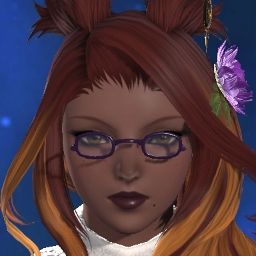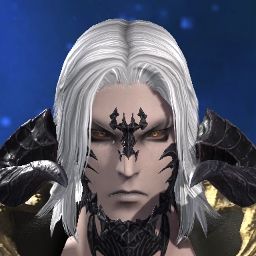Thread: English Translation Terrible.
-
03-03-2023 01:10 PM #71Player

- Join Date
- Mar 2011
- Posts
- 2,731
- Character
- Fawkes Macleod
- World
- Excalibur
- Main Class
- White Mage Lv 100
(2)
-
03-03-2023 02:45 PM #72Player

- Join Date
- Apr 2022
- Location
- Uldah
- Posts
- 3,886
- Character
- Renalt El'doran
- World
- Balmung
- Main Class
- Bard Lv 90
Here's a good video about translations. I liked the bit about the room names.
https://youtu.be/0DMdKDjaNfU(1)When you deal with human beings, never count on logic or consistency.
Fluid like water. Smooth like silk. Pepperoni like pizza.
-
03-03-2023 10:11 PM #73Player

- Join Date
- Oct 2017
- Location
- Bozja
- Posts
- 2,580
- Character
- Harun Asubra
- World
- Zodiark
- Main Class
- Warrior Lv 100
Technically Koji Fox used to be in charge of writing the lore. Otherwise, he isn't directly involved in how the story is written, but he does have a larger influence than any other localization member would in any videogame. To do what the localization team does, one needs to have that sort of soft power.
Otherwise, if we take into account it's them passing the game's text from one language and culture to another, then yes, this is a translation. But it's an incredibly atypical one. A normal translation doesn't involve this deep a rewrite of tone and character without long talks with your publisher and editor. And this is stated on the first link you posted:
Kate (Lore, English):
As mentioned above, FFXIV in particular is a team effort of the sort that’s incredibly rare in Japanese games localization, so it would be hard to really put a number to the people involved in this aspect of the project. We translators are very fortunate to have an ongoing dialogue with the devs regarding the lore, UI, cutscenes, and more. This allows us to spot potential localization pitfalls, but also helps us have a more sound understanding of what we’re translating, and allows the dev team to ask us questions in turn.This is, indeed, not normal. The FF14 English Localization Team is very much not doing a normal localization job, they can change things a lot quicker. It's not "in tandem with JP", and I'm sorry if I've ever misled people into thinking that. Because that wouldn't happen either way. They're not at the table discussing it with the writers, but they do have the chance to add their stuff into the game. And for that, they are made aware of what the story is and where it's gonna go, and from that they do what they do on top of it. It's not written at the same time JP's is, but there are considerations that exist on top. Otherwise yes, they need to wait for Ishiwaka to finish her script, then wait for revision and all that.David (German):
The English team is actively involved in naming of skills and location names, etc. and the wider localization team is invited to provide ideas and concepts for new creatures from their various cultures. Then there are situations where we do culture checks and flag potential issues in the story to avoid misunderstandings or to cater to contemporary cultural developments.
I wish I had as much leniency as this team...
 I naturally don't know how they do it verbatim. I'm not in there to know. But I know that their job isn't what normally happens, and that shouldn't be ignored either. No, they are not involved in the writing process. AT BEST they have an impact on some lore aspects, or one member used to, at the least. But the end result is what I think people focus on, and indeed, the end result isn't your standard localization job, there's a bit "more" going on.
I naturally don't know how they do it verbatim. I'm not in there to know. But I know that their job isn't what normally happens, and that shouldn't be ignored either. No, they are not involved in the writing process. AT BEST they have an impact on some lore aspects, or one member used to, at the least. But the end result is what I think people focus on, and indeed, the end result isn't your standard localization job, there's a bit "more" going on.
It's not just the tone of things or what characters say that gets changed. Because the abundance of memes out there isn't normal for JP. Urianger's sesquipedalian loquaciousness isn't present in other languages.
But they cannot re-write the story. And that's also an even bigger misconception I end up causing. It's still a translation, no doubt about it. It's just got more freedom in it to the point where some stuff are not present in the original and the message can end up distorted. Which I consider a rewrite. And rewrites are natural in translation. Sometimes you even have to due to cultural sensitivity or censorship. BUT it's not normal for the text's changes to be this pronounced as they are in English, which reveals that they have an impact greater than a normal localization team does.
Overall, though? What people need to understand is that for all its flaws and all the stuff people complain, it's still FF14 you're playing. It's the same story, the same script, the same events and largely the same characters. Tone might change, memes might be more present and Koji Fox might have a larger understanding of the story than most due to having been more directly involved in the worldbuilding, but it's still the same game. Whatever you lose out on isn't in comprehension, but rather in the tonal shift of things.
Otherwise, this is a dev team known for caring about comprehension and consistency. Phlegethon is "Titan" in Japanese, due to it being a reference to the boss Titan in FF3. But we already had a Titan, it's just that in JP there's a difference between "Tie-Tan" and "Tee-Tan". So it worked for them. The EN team so changed to Phlegethon, a river in Hades. It then in turn led to a hilarious situation where the Syrcus Tower mobs "Acheron" were named Phlegethon in JP. So back to Hades the EN team went and renamed those to Acheron, another river xD
...
Also, just a side-note
Yeah... I feel like so many Japanese games end up not having a proper grasp of Translation memories and Termbases, and we get weird consistency problems even in games of the same franchise. It often requires the translation team to be aware of what the other projects did. And not many companies are aware that this is beneficial even for them, and don't keep one. Just a word to everyone who plans on having a translation team in the future: please keep the Translation Memories or Termbases teams make. You'll be grateful in the future and any and all translator you hire afterward will be so, so grateful. And if they don't have any, start using one.Pierre (French):
We have to use a specific glossary for the other game elements, like skills, place names, and more. Also, the person in charge needs to know a thing or two about the other game. You couldn’t ask someone who’s never played NieR to translate something based on YOKO TARO’s work, for instance. Then, we have to be careful when two very different worlds collide, like with FFXIV and FFXV.(7)Last edited by Midareyukki; 03-03-2023 at 10:28 PM.
-
03-03-2023 10:21 PM #74Player

- Join Date
- Oct 2017
- Location
- Bozja
- Posts
- 2,580
- Character
- Harun Asubra
- World
- Zodiark
- Main Class
- Warrior Lv 100
It is. Usually, in technical texts (so think school papers, thesis and instruction manuals), you generally only ever change sentences for the sake of clarity. It's mostly got to do with sentence structure and grammar.
In literary texts, they usually go for a healthy balance. They start out being literal so they stick closely to the text, making the appropriate sentence and grammar changes. However, there's so much more nuance and even author style/intention at times that there needs to be a massive change. Sometimes character dialogue won't sound natural. Sometimes there are references and metaphors. Sometimes there are dynamics at play that we take for granted in our own language but have to be specified.
Some words are super straightforward in English and not at all in other languages, such as "Yes" in Japanese, or in the European variant of Romance Languages, the use of "You", which can change far more than just grammar. It can change the tone of the character's speech entirely.
The key component is to always transmit the same message as the author is transmitting to the reader. But that message will always be distorted due to culture, perceptions, language, etc. Our job is to minimize the impact, not rewrite it from scratch. When we do, it's either minor, or we discuss with the editor (normally).
What the DE and FR versions of FF14 do is way more standard than what the EN one does. EN's translation isn't a typical one, but I wouldn't put the blame on the translators nor say it's a bad one.
It's just different, with a very atypical situation. And while I like to think "atypical isn't bad", some of the results may vary, and that will be 100% subjective and up to the reader.
So if you know JP and feel like the EN version is bad or missed the mark, it's normal. If you were in their shoes, who knows if you'd have done the same. Because if you come into this from the perspective that this translation is like any other, then you'll always have something to nitpick.
('you' in general, not you directly Fawkes)(5)
-
03-04-2023 12:12 AM #75Player

- Join Date
- Feb 2018
- Posts
- 3,320
- Character
- Sanna Rosewood
- World
- Midgardsormr
- Main Class
- White Mage Lv 100
There are people who want a 1:1 for the English though. As that's how the German and French has been. There's also those who would rather the English localization be aimed more at the European audience instead of the North American audiences. They pop up any time this subject gets brought up time and time again. Or they blame ShB and EW on Koji even after having been told Kate was given the role of lead English localization around the time Koji got moved to do the localization for XVI. And yes those who feel a 1:1 of the English version would be a good thing don't care that there are some words or phrases that just wouldn't work or make as much sense if translated that way.
For example there are many who somehow didn't pick up on the WoL being important to or just how important they were to Emet-Selch until 5.3 when shade Hythlodaeus is handing us the Azem memory crystal. Even though Emet-Selch drops various hints either with what he says, how he says it, or with how he looks at the WoL while saying it. Sometimes I wonder if it's due to these people not being native English speakers and so miss the nuances that most native English speakers tend to pick up.(1)Last edited by SannaR; 03-04-2023 at 12:45 AM.
-
03-04-2023 12:27 AM #76Player

- Join Date
- Feb 2018
- Posts
- 3,320
- Character
- Sanna Rosewood
- World
- Midgardsormr
- Main Class
- White Mage Lv 100
I know this is a recent interview of Koji and that it centers around XI it matches up with a lot of the things he has said as how things are like with the translation and localization of XIV in the past. I doubt it's changed much.
https://we-are-vanadiel.finalfantasyxi.com/post/?id=632(2)
-
03-04-2023 12:39 AM #77
Too bad Japanese tends to be very wordy and overexplain a lot in their dialogue. And with this game already being wordy enough, I dont think itll sit well with the community having to deal with extra dialogue just to give out the same context.
Itll be like going back to ARR days where so much was said for an idea that you can illustrate with few words(0)
-
03-04-2023 12:52 AM #78Player

- Join Date
- Feb 2018
- Posts
- 3,320
- Character
- Sanna Rosewood
- World
- Midgardsormr
- Main Class
- White Mage Lv 100
What!? Are you saying making everyone and their pet Chocobo be as wordy as Urianger is a bad thing? No no no no that can't be right cause everyone EVERYONE just loves how wordy Urianger is. /s There are times when Japanese can get very short hand, but those tend to be in more informal situations. Which isn't going to be used for a video game.
(3)
-
03-04-2023 01:08 AM #79Player

- Join Date
- Oct 2017
- Location
- Bozja
- Posts
- 2,580
- Character
- Harun Asubra
- World
- Zodiark
- Main Class
- Warrior Lv 100
This isn't too much of a problem o: Usually people who know Japanese and do professional work* tend to be aware of these things. English is very curt and short, people speak directly and to the point. And they often go through third party revision work anyway for consistency and to check whether things sound natural.
If it's done right, you won't see the wordiness. And if you do, it's a sign something went wrong.
*The amateur anime and videogame translations I've seen that love being too Japanese-y and stick to how JP words things are terrible and they know it. So much sounds unnatural even for non-native English speakers.
Question is, though, if the stuff we got in ARR was a result of a literal translation, or if it was a product of the style the localization team worked with. If they wanted it to be intentionally redundant and wordy, then might be a style issue. Which is I don't think the issues were language-based though... I'm used to seeing poor translations from fans that are very similar in structure to what I know of Japanese. I think ARR's wordiness comes from them trying to copy 17 and 18th Century formal texts. Which are very wordy and needlessly descriptive.(1)
-
03-04-2023 10:36 AM #80Player

- Join Date
- May 2014
- Posts
- 2,881
- Character
- Kris Goldenshield
- World
- Tonberry
- Main Class
- Gladiator Lv 100
This is the thing a lot of people don’t understand or appreciate. The default language of the “first finalized” script is indeed English, even if the rough draft is Japanese.
In addition, it is hard to translate to an equivalent of “ye olde English” in Japanese without being overly cumbersome/hard to read, so a lot of Japanese comes down to modern dialects and/or stereotypical sentence endings. Polite Japanese + end sentences with “gozaimasu”?? Must be a ninja!(3)




 Reply With Quote
Reply With Quote







